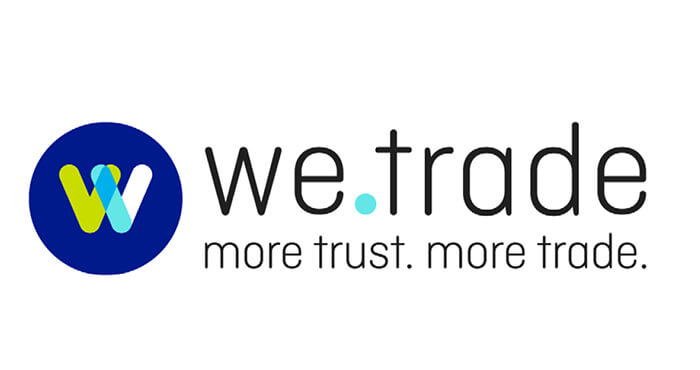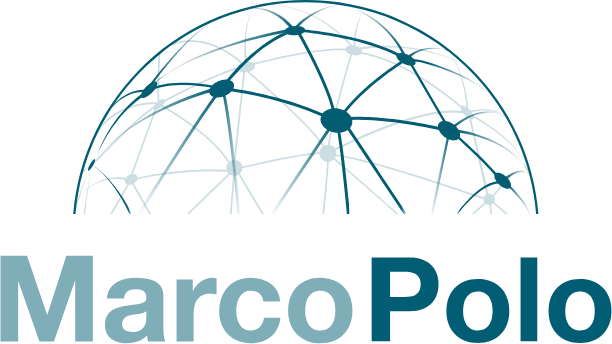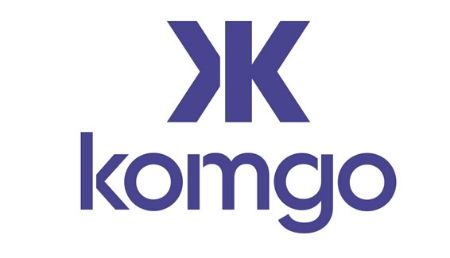Trade finance is crucial for trading activities. According to WTO estimates, up to 80 per cent of trade is financed by some form of financing. Yet, securing trade finance can be complex, costly and time consuming. Many in the industry saw the advent of blockchain as an opportunity to tackle some of the inefficiencies associated with trade financing.
Several DLT initiatives have sprung up to help connect various key stakeholders and improve trade finance processes. While many of the projects that have made the headlines are consortia of banks teaming up to help solve common problems, there is also an increasing number of non-consortia initiatives involved. This post will dive into each of these individual consortia.
We.Trade

we.trade Innovation DAC is a joint-venture company owned by 12 European banks that has been in live production since January 2019. It started with nine banks in January 2017 under the name of Digital Trade Chain and later officially changed to we.trade in October 2017. In March 2019, we.trade and Hong Kong, China-based eTrade Connect completed a successful proof of concept (PoC) to connect platforms.
Together with IBM, we.trade has developed a digital trade platform based on Linux Foundation’s Hyperledger Fabric to run on the IBM Blockchain Platform. The platform addresses the challenges of open account and documentary trading, providing a digital trade platform that delivers certainty, simplicity and security for all parties in the trade value chain. we.trade is the first blockchain-based trade platform for banks and their commercial clients in Europe and originally aimed to service the micro-, small and medium-sized enterprise (MSME) market.
We.trade’s current product line consists of auto settlement, bank payment undertaking (BPU), BPU financing, and invoice financing. Future product deployments are expected to include enterprise resource planning (ERP) connectivity, API readiness, additional payment triggers, and the addition of logistics, insurance and customs functionality.
Licensee banks include: CaixaBank, Deutsche Bank, ERSTE Group, HSBC, KBC, Natixis, Rabobank, Société Générale, UniCredit, Nordea, Santander and UBS are the participating banks of we.trade while UniCredit AG in Germany, CSOB, and Eurobank.
eTradeConnect

eTradeConnect is an Asia-Pacific consortium managed by the Hong Kong Trade Finance Platform Company Limited (HKTFPCL) and powered by Hyperledger Fabric. Launched in September 2018, the consortium aims to build better trust among trade participants, improve efficiency, reduce risks, and facilitate trade counterparties to obtain financing by digitizing trade documents and automating trade finance processes. eTradeConnect has digitized purchase order and invoice creation, pre- and post-shipment trade finance on open account trade, duplicated financing check, and payment status updates. The network is currently working toward digitizing the connections with logistics service providers, connection with different trade finance platforms from other jurisdictions, and integrations with ERP systems.
Originally initiated by seven banks including Australia and New Zealand Banking Group Limited, Bank of China (Hong Kong) Limited, The Bank of East Asia Limited, DBS Bank (Hong Kong) Limited, Hang Seng Bank Limited, HSBC and Standard Chartered Bank (Hong Kong) Limited and facilitated by the Hong Kong Monetary Authority (HKMA), eTradeConnect has since grown to 12 banks. In October 2018 the network signed a memorandum of understanding with the European we.trade consortium that operates on the same underlying technology. While eTradeConnect primarily focuses on the Asia-Pacific region, this partnership may help open a broader trade corridor between Asia and Europe.
In November 2019, eTradeConnect announced a proof of concept to connect the platform with CargoSmart and shipping industry participants that are proposing to form the Global Shipping Business Network (GSBN). Facilitated by PwC, the PoC is intended to demonstrate that linking the supply chain data, from the shipping industry, with trade finance data, from eTradeConnect, can provide enhanced transparency, traceability, and efficiency for the 12 member banks and their trade finance customers. That same month also saw eTradeConnect complete a proof of concept to integrate the network with existing ERP systems.
Looking ahead, the focus for eTradeConnect will be on establishing connectivity with various trade platforms.
Marco Polo

The Marco Polo Network, powered by R3’s Corda DLT platform, consists of over 30 banks comprising a global reach. The fundamental aim of the network is to facilitate working capital finance solutions via a distributed trade finance platform. This namely includes receivable finance, payables finance, and payment commitment with and without financing. It also provides secure, distributed data storage and bookkeeping, identity management, and asset verification among other features. Open Application Interfaces (APIs) and legacy system compatibility allow banks to easily integrate to their corporate clients with their ERP systems via the Marco Polo Enterprise Resource Planning (ERP) App. This helps to limit internal disruptions and eases communication with enterprise clients.
The first transactions on Marco Polo were conducted in March 2019. These transactions, facilitated by the German banks Commerzbank and LBBW, were between the technology company Voith, the pump and valve manufacturer KSB and the logistic company Logwin. Since then, multiple transactions have been piloted successfully with Novolipetsk Steel Company (NLMK), Vesuvius GmbH, Mitsui & Co. Ltd, APA, Schott, Indorama Daimler, Dürr, Bangkok Bank, SMBC, Alfa-Bank, LBBW and Commerzbank.
“Letter of Credit Network”, formerly “Voltron”
Project Voltron works with over 50 banks and corporates delivering a Corda-powered open industry platform to create, exchange, approve, and issue letters of credit as its first product. The platform, currently accessible to all customers of member banks, will enable banks to provide faster service levels, financing decisions, and lower rates to their customers. In addition to Voltron created documents, trade documents produced on external networks by a corporation’s supply chain partners can also be digitally sent, verified, and processed in Voltron. Integration to electronic bills of lading from platforms like Bolero and EssDOCS have already been tested in Voltron’s over 25 live data pilot transactions and a variety of other partnerships are being developed for other services related to trade finance. One of those, ReChainMe from the United Arab Emirates announced their first pilot transaction with Project Voltron in June 2019.
Project Voltron is the culmination of 18 months of 8 banks working with R3 to evaluate the benefits of letters of credit on Corda. Founded by a selection of global, regional and local banks including Bangkok Bank, BNP Paribas, CTBC, HSBC, ING, Natwest, SEB, and Standard Chartered, this globally reaching consortium completed its first transaction in April 2018. In September 2019, HSBC announced that it had processed a Yuan-denominated letter of credit using the Voltron platform, the first of its kind. Transactions in 15 different counties were tested prior to launching their Beta Network in December 2019.
At the CordaCon conference in September 2019, it was announced that the Voltron platform is in the process of rebranding, incorporating an entity in Singapore and launching their Beta Network in December 2019 to fully scale in early 2020. At the time of writing, there has yet to be a new name selected for “the Letter of Credit Network formerly known as Voltron”.
Finacle Trade Connect
“Finacle Trade connect today caters to a comprehensive set of end to end key trade functionalities required for trade business.”
-Mohua Banerjee, Senior Business Development Manager, Finacle Blockchain solutions
Finacle Trade Connect is the comprehensive blockchain-based solution from Finacle, developed specifically to simplify and digitize the trade finance business process requirements of banks using blockchain. Founded in 2017, the solution helps digitize trade finance business processes, including validation of ownership, certificate of documents and making payments, while working on a distributed, trusted, and shared network and was first piloted as the India Trade Connect project. The consortium consists of 14 leading banks in India including ICICI Bank, Axis Bank, Standard Chartered Bank, YES Bank, Ratnakar Bank Limited, Bank of Baroda, Syndicate Bank, Kotak Mahindra Bank, Indusind Bank, and South Indian Bank among others. The consortium is now in the process of being incorporated as a company called Blockchain Infra Company.
Their solution supports a comprehensive set of end-to-end trade products and functions including Open Account, Letter of Credit, Bank Guarantee, Bill collection, C2C and B2C transactions. Finacle Trade Connect, which is built on the principle of permissioned networks, is agnostic to the underlying distributed ledger technology and is certified to work on most major platforms including R3’s Corda, Hyperledger Fabric, and Ethereum stacks. Banks can leverage the solution to adopt one of three key strategies: building inter-banking group networks, curating intra-banking networks, and offering trade-as-a-service.
Komgo

“Komgo has the largest network of banks and corporates in production today, we are looking forward to supporting the industry in its transition to a safer and more secure way of operating”
-Souleïma Baddi, CEO at KomGo SA
komgo is a live, fully decentralized commodity trade finance network built on the Quorum blockchain infrastructure. Investors and shareholders of the company include Citi, ING, Credit Agricole CIB, BNP Paribas, Societe Generale, ABN Amro, Macquarie, MUFG, Natixis, Rabobank, Gunvor, Mercuria, Koch, Shell, and SGS.
Komgo offers 3 main families of products to its users:
1. Digital trade finance related products (including Letters of Credit, Standby Letters of Credit, receivables discounting and inventory financing), allowing commodity houses and other players to submit digital trade data and documents to financing institutions and apply for credit directly on the platform.
2. A KYC solution, standardizing and facilitating the process while maintaining privacy by transmitting data on a need to know basis: users & non-users benefit from a single source of trust to exchange documents on a secure and private network to perform KYC tasks.
3. A certification feature, that allows komgo users and non-users to stamp their documents on the network to ensure their authenticity.
komgo offers a unique and all-inclusive product suite which answers to the needs of a wide-range of corporate and bank users from across the front, middle and back office functions.
Before reaching maturity and entering the production phase the company embarked on two successful proofs of concepts. The first, in October 2016, was a shipment of crude cargo from Angola to China with Mercuria as the seller, ChemChina as the buyer, ING as the selling bank, and Societe Generale advising. In October 2017, a second successful PoC involving a transaction of soybeans from the USA to China was completed on the network.
The first live transaction on the komgo platform was announced in December 2018. While the firm cannot disclose details of live transactions, they have said that as of September 2019, it has channelled more than $1 billion of financing on the platform.
Clipeum
“Blockchain has gotten companies together around a table to talk about a common problem”
-Pierre Sien, Euler Hermes (Clipeum Participant)
Clipeum is a permissioned DLT joint venture initiated by Société Générale in 2017 and built on the Corda framework. The project aims to build a European know-your-customer (KYC) network with the clients at the centre having full control over data sharing and access permissions. Set to go live in 2020, Clipeum consists of 12 European financial institutions including BPCE/Natixis, Credit Agricole, Commerzbank, Allianz, Banque Postale, BpiFrance, Euler Hermes, Tikehau, and UniCredit.
The principle of Clipeum is that every corporate has a vault in which they store their KYC information. Financial institutions can request access to that information and, if the corporate approves the request, the information and all of its updates are made available to the financial institution until the access right is revoked.
The project is set to incorporate later this year which will alter the project governance structure. For now, each company has a voice. Once a third party entity is incorporated, decisions will depend on the amount of shares and investment within the entity.
Bay Area Trade Finance Blockchain Platform (BATFB)
The Bay Area Trade Finance Blockchain Platform (BATFB) is a DLT based platform that was unveiled by the People’s Bank of China in September 2018. The platform, which now incorporates 28 banks in Shenzhen, has processed over $4.5 Billion worth of foreign exchange transactions to date. The intended purpose of the project has been real-time traceability, the elimination of fraud, and a reduction in the need for manual transactions.
The platform, which is built using proprietary technology, has announced plans to link with the Hong Kong, China-based platform eTradeConnect, which is powered by Hyperledger Fabric.
Global Trade Connectivity Network (GTCN)
The Global Trade Connectivity Network (GTCN) is a collaboration between the Monetary Authority of Singapore (MAS) and the Hong Kong Monetary Authority (HKMA) to develop a DLT infrastructure for cross-border transactions. The initiative strikes out to reduce the number of pain points involved in traditional trade finance transactions, leveraging Distributed Ledger Technology (DLT) to build an infrastructure for more efficient cross-border trade and trade finance transactions.
To assist with overcoming many of the challenges currently facing the DLT in trade industry, technology and FinTech vendors have been invited to make proposals for inclusion on the platform. The GTCN has since been built on an open architecture so that is will be a seamless process for other jurisdictions beyond just MAS and HKMA to join.
























